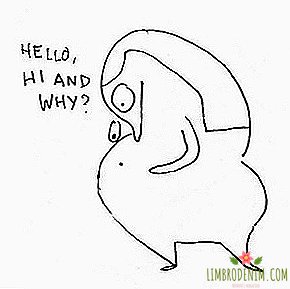Human rights activist Anna Sarang on drugs and the HIV epidemic in Russia
IN RUBRIC "BUSINESS"We acquaint readers with women of different professions and hobbies that we like or are simply interested in. In this issue, we spoke with Anna Sarang, President of the Andrey Rylkov Foundation for the Promotion of Health and Social Justice, which helps people with drug addiction. Sarang talked about the problems of Russian drug policy, the fight against HIV in the late 1990s, and how to combine an academic career abroad and legal proceedings with the Ministry of Justice.
In the material may not contain information for persons under 18 years old
Russia without AIDS
I became involved in drug policy almost twenty years ago, and somehow I quickly realized that I would have to cut myself to the very end. It all started with the fact that in 1998 the Dutch organization Doctors Without Borders became interested in Russia as a country where the number of people who use drugs increased dramatically and, consequently, the risk of an HIV epidemic increased. “Doctors without Borders” wanted to prevent this in the bud, as they had already developed working methods in other countries. Then there were about fifty HIV-positive people in the whole of Moscow - as I remember a note in the newspaper. And the Dutch did not really understand how to get to Russia, because the problem was absolutely not obvious.
There were a lot of people with drug addiction at that time, including my friends. “Doctors without Borders” met them through one foreign photographer who shot a booming Russian and Ukrainian drug scene. The Dutch were lucky because my friends not only used drugs, but also spoke good English. "Doctors without Borders" put them to read smart books about harm reduction from drugs, paid them free Krishna lunches and a large office with the condition that after six months the guys would spin the topic in Russia - they would start explaining to drug addicts how to use and have sex, reducing harm to health That's when I got sucked into this whole story.
In 1998, the program started working at full speed, then there were about fifteen of us — it was a lot of fun, the Dutch had a lot of money, and we had freedom of expression. Every day we went to the city to communicate with drug users, in Moscow there was an open drug scene - points in the Lubyanka, China Town, in the Bird Market. Printed a bunch of beautiful colorful brochures with the help of iconic artists like Chihuus (Pavel Sukhikh, one of the most famous Russian comicists. - Ed.). They wrote in simple language about the threat of HIV and hepatitis - nobody really thought about it then. We talked about the safe use of different types of drugs - not only opiates, but also psychedelics, and some "dancing" substances. They also released their Zin "Brain" - now we can not find at least one copy, although this is a completely cult thing for the 90s.
A year later, all of Moscow already knew about us, and mobile sessions began in different cities. Of course, we went to Kazantip for obvious reasons. The most beautiful thing at the time was that we were very much supported by the Ministry of Health. They organized special trainings for infectious diseases and narcologists. And the chief narcologist of the department went with us to street work - he talked with people with drug addiction in Lubyanka. He even went with us to the then-popular “Ray” club and talked about his work. During Yeltsin’s time, the authorities had a very open stance towards harm reduction programs, the Ministry of Health was genuinely interested in people who really wanted to prevent the epidemics of HIV and hepatitis. There was a feeling that in a year or two they would launch the state harm reduction program, as it did in Western Europe.
Conservative twist
By the beginning of zero, the former optimism has subsided. The "Doctors Without Borders" program has closed. During this time, independent harm reduction organizations have appeared in forty cities of Russia, and the Ministry of Health has ceased to actively support them. Although, of course, Gennady Onishchenko(Head of Rospotrebnadzor from 2004 to 2013. - Approx. Ed.) Every year he issued orders to launch a harm reduction program, but nothing moved further. Then I worked for a year in an international organization, but it became clear that there would be no progress by the Ministry of Health, so my friends and I found foreign donors and launched the All-Russian Harm Reduction Network to support regional specialists suffocating from lack of money.
By 2009, the political situation has changed dramatically. The Ministry of Health did not just stop supporting the work on harm reduction, but also began to put sticks into the wheels. Tatyana Golikova(Minister of Health from 2007 to 2012. - Approx. Ed.), speaking at the Security Council, called such programs harmful to Russia. It should be understood that the year was not 1998, and by that time the country had a full-fledged HIV epidemic. The authorities said that they would invent their own method of combating the spread of such diseases among drug users, but almost ten years have passed, and for some reason this has not happened yet.
The position on confronting HIV prevention programs among drug users began to take shape in 2009 and has now reached the height of meaninglessness. At first, raids on methadone began(narcotic substance, which is used in substitution therapy for heroin addicts. - Approx. Ed.) - because it is also a drug. Now, on this score, there are more and more strange statements by government officials that do not stand up to criticism, while the authorities are all going to enter into an anti-methadone union, either with Saudi Arabia, now with Pakistan, or with the poorest African countries.
I have been involved in drug policy for almost twenty years, and all this time it remains a mystery to me why the Ministry of Health has turned against the substitution therapy. There are completely different theories about this, for example, about the Russian drug mafia, which is afraid of the market collapse after the appearance of substitution therapy. Someone says that methadone is too cheap to get big kickbacks for tenders. The Russian authorities are promoting the position that we do not need methadone, since we will treat everyone with naltrexone (an opium receptor blocker), and this, unlike methadone, is a very expensive drug. So it's one thing to cut a real gold bar, and another is a knot from a piece of wood.
About Andrey Rylkov Foundation
On this wave, we decided to launch the Andrey Rylkov Foundation (The organization is listed as a foreign agent. - Ed.) - the project is more activist and human rights. Now our task is not just to raise money for HIV prevention in the West and distribute it to Russian NGOs, but to record human rights violations among drug users, to organize public debates about drug policies in Russia and in the world. We also continue to work on a harm reduction project in Moscow: every day we go to the streets of the city and meet with drug users, distribute preventive materials to them - syringes and condoms, advise on health issues, help find the right help to solve their problems - medical, psychological, legal. We also have a special program for addicts with children. We go to these families with Santa Claus, helping to gather on the first of September. We even collaborate with museums and theaters that provide free passes so that such parents can spend more time with their children. But all this is on a much smaller scale and with active resistance from the Ministry of Health.
Our foundation has several projects, but my most beloved, “Drug Phobia,” is a contest for journalists who cover drug policy issues. Initially, it was created by art activists who thought about this topic in their works, but then the media also connected. The fact is that in Russia few people understand that there is a complex international architecture that supports the modern regime of drug prohibition, complex discussions about drug policy in general. But during the existence of "Narchophobia" we saw a great progress - the discourse has changed quite noticeably. If earlier a journalist could afford to call Yevgeny Roizman a cool guy, now he would think ten times before doing it.
In 2016, the Andrey Rylkov Foundation was included in the list of foreign agents. Although the verification of the Justice Ministry was carried out with a mass of violations, they wanted to collect a huge fine from us for not voluntarily registering with this registry. Through court we managed to fight off the penalty, but we remained on the list. Now we are contesting this decision through the Moscow City Court, but, most likely, we will have to appeal to the European Court of Human Rights.
At one point, lawyers even suggested closing the organization, because the stamp of the agent constantly threatens us with a huge fine due to some trifles. For example, recently I made invitations to our event and almost forgot to prescribe that we are on this list — even they can find fault. So at one point we decided to make a special safety fund for unexpected fines. Evgeny Chichvarkin and Masha Alekhina made a great contribution to it, and the rest was crowded with crowds. From this work has become much calmer.
About science
When "Doctors Without Borders" curtailed their program in Russia, I began to cooperate with the Imperial College of London and the Moscow Research Institute of Addiction, which at the beginning of the nine years still had the opportunity and desire to research drugs from a scientific point of view.
With the Imperial College, we began our work with a study of HIV prevalence among drug users in Tolyatti, Volgograd, Barnaul and other cities. British colleagues were then shocked that 65% of people with drug addiction in Togliatti were HIV-positive. There were also other joint projects: studies on the socio-economic status of drug users; they found out how the police influence HIV prevention, the impact of the HIV epidemic on sex workers. I had to work in the field and do interviews - as you understand, a very interesting experience.
As a result, in 2003 I remotely entered the Imperial College on the master's program "Drugs, Alcohol and Drug Policy." It was great to do our own final research together with the Moscow Research Institute of Addiction. We studied the so-called controlled drug use - people who used hard drugs, but at the same time worked, studied or were actively engaged in creativity. In general, the mechanism of addictive drug management in the framework of social and conventional life.
I do not have an academic career as such, but through all the obstacles I have always managed to find time for scientific publications. She even graduated from another Master in Gender Studies. My dissertation was devoted to the influence of Russian-Soviet colonization on the perception of gender in Tajikistan. Not about drugs! So for me it was a new experience, and I really wanted to continue to move in this direction, but there were clashes with the Ministry of Justice and distracted me from science.
About moving to Holland and daughter
A year and a half ago, my daughter and I moved to Holland for my young man, who came here because I entered the university. Once I visited him and realized that it was very difficult to live separately. Besides, I had a dream to learn a little more. Fortunately, I found a very interesting master's program in medical sociology and anthropology at the University of Amsterdam, which completely suited me. I enrolled in it, which, on the one hand, gave me the opportunity to move in with my loved one, and on the other, to console a long-standing thirst for new knowledge and fill my gap in anthropology.
I have an 11-year-old daughter, and I try to discuss drugs with her without condescension or ageism. She knows that there are drug addicts, even a couple of times I was at work in Moscow and here in Holland. The last time we spoke on this topic was when a 15-year-old teenager died ostensibly from an overdose of LSD. I explained to her what kind of drug it was and whether it was possible to die from it. The question is not even how to talk specifically about drugs, but to have a channel of communication with your child on all issues, and not to discuss only evaluations at school.
About the features of work
As president of the foundation, I deal with bureaucracy (I plan new projects, deal with funding and reports) and represent us at the international level — I speak at conferences. In March 2017, I was in Vienna at the Commission on Narcotic Drugs (CND), and before that in Geneva at the session of the Committee on Economic, Social and Cultural Rights.
I do not get from this great pleasure. I am not Bill, or even Hillary Clinton, to ignite the masses with my speeches. If I had the opportunity, I would not do it at all. The last time I gave a brief report on the drug situation in Russia and told me that in three years our foundation was saved by more than seven hundred people. Then a woman came up to me with tears in her eyes and said that she didn’t know that in Russia someone was engaged in harm reduction. After all, in the West, they either think that we are full of Stalinism and all NCOs were shot for a long time, or they do not pay attention at all. That is why many international donors turned away from us - they simply decided that because of Putin there was no space left for civil society in the country. Of course, propaganda on both sides is to blame.
Participation in such events can not give an instant result, but the cumulative effect is still there. Russian activists have long filed a lawsuit with the European Court of Human Rights due to the lack of substitution therapy in the country - this way you can try to oblige the country to fulfill its international obligations to protect the health of Russian citizens. Thanks to the documentation of violations of rights on the part of Russia, we create a more complete picture of the observance (or rather, non-compliance) by Russia of international agreements.
Sometimes you want to run away from all this and do science, but, on the other hand, I have no desire to teach or devote myself to academic bureaucracy. I also miss field work and live communication with drug users, I don’t understand how to deal with this topic without a live feedback. Fortunately, even in Holland I managed to find an outlet in this sense. I was invited to volunteer at a shelter (a project of the De Regenboog groep organization), originally created for the homeless, to give them food and shelter. But since many of them take drugs, special shelters have been made in the shelter in which people can do this without stress and health risks. In such places you can safely drink a cup of coffee, get a sterile syringe, social assistance and companionship. In Holland, it is not customary to prick, so it helps migrants more, among which there are many people from the CIS.




